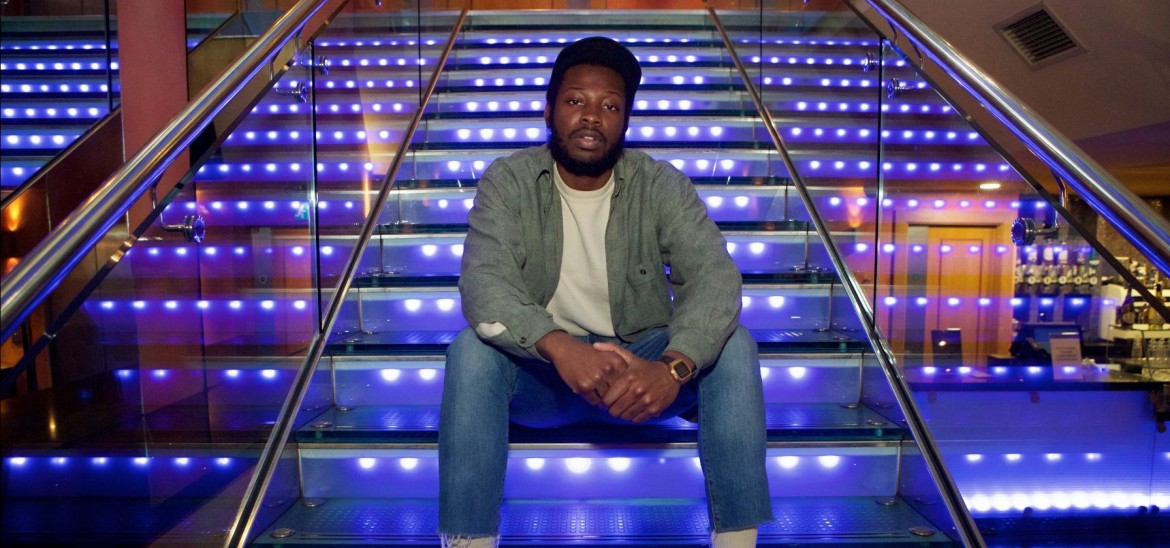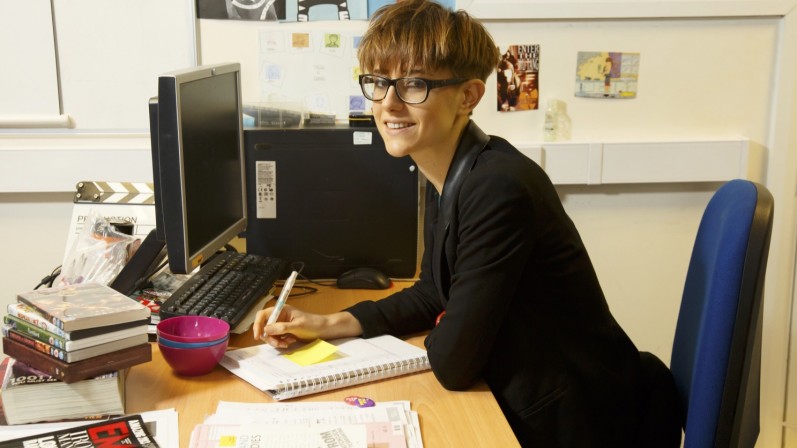Into Film Clubs
Find out everything you need to know about starting an Into Film Club.



We're delighted and proud to announce filmmaker Cornelius Walker as our new Into Film Ambassador. It takes a self-effacing and genuine person to want to help and support young people who have fallen on the wrong side of the tracks, and Oscar®-nominated director, writer and producer Cornelius Walker (aged 29) is just that. Cornelius co-founded the collective Young Once Creative Forever, through which he's made films for the likes of Google, and his most recent film is the gone-viral drama Take Me.
It's a great honour to be an Into Film Ambassador, I believe strongly in helping the youth in any way possible. I love what this organisation does for pupils, so much so that I wish I could be young again because I never had an Into Film growing up. This is a great opportunity for me to, hopefully play a part in helping to inspire young people, particularly those who might find themselves lost for a bit, as I was.
Into Film Ambassador, Cornelius Walker
Following the Oscar-nominated success of his film Black Sheep - a 30 minute autobiographical film about his traumatic younger life in which he was subjected to racial violence and subsequently became part of a gang himself - Cornelius was compelled to give something back. He has since been working with young people - primarily with teenage boys who have fallen out of the educational system and become involved in violence and crime themselves.
Over the past 18 months, Cornelius has mentored and taught groups of teenage young offenders, supporting them to make films about the stories they want to tell. He has given talks to schools and colleges in London, at the Into Film Festival and most recently at a South London Pupil Referral Unit (PRU), on what transpired was the morning after the tragic murder of a 15-year-old friend of some of the PRU pupils.
Cornelius' story - as portrayed in Black Sheep - begins straight after the murder of his then-neighbour, 10-year-old Damilola Taylor, on a Peckham housing estate. In response to the tragic circumstances that were too close for comfort, Cornelius' family decided that London was not safe and moved to the predominantly White area of Grays, Essex.
Cornelius said; "I saw Damilola's mother on TV, in African attire, and that was when it hit me and my mum even more. People like her had brought their children here for a better life. It could have been me, or one of my brothers."
Once in Essex, having to navigate threats and racial violence became a daily occurrence so, to protect himself, Cornelius decided he had to be like the White kids who were attacking him - develop their accent, entertain them, be funny. But it wasn't enough, and after a severe beating which forced him to take two weeks off school, one of the other Black pupils accused him of being "colonised" because he'd tried so hard to fit in with the White people who now accepted him.
When I was younger, I didn't know who accepted me or who I wanted acceptance from. The greatest gift was learning to accept myself.
Into Film Ambassador, Cornelius Walker
Further to his extensive work with young people using his relatable life experiences and promoting filmmaking as a powerful and inspiring educational tool, Cornelius will next be presenting an award at this year's Into Film Awards at ODEON Luxe Leicester Square on March 18.
With the film produced with The Guardian, Black Sheep is available to watch for free on their website, and you can read Cornelius' full talk to the South London PRU on dealing with racism and learning to embrace his own identity, below.
"I found myself caught in the middle. It was as if I didn't know if I wanted to be White or Black. Things got worse. My Black friends and I began to get attacked; we'd walk down the street and people would speed their cars up and try to hit us on the pavement. Or we would be circled by men on motorbikes who would jump off and attack us. People threw things from cars, hurling abuse.
I watched a lot of Jim Carrey at the time.The Mask became my guide as I saw how he'd become this wacky, adaptable person. I created a personality for myself; funny, happy-go-lucky, good with the girls, but still the racism followed me. I remember walking with a White girlfriend and someone saying, "If you have a baby, will it come out grey? If I see that baby, I'll kick it."
There was a period after that where I lashed out, doing stupid crazy, violent stuff with my White friends and my Black friends too. It was a way of saying, "I'm going to put it on you guys now." I wanted to be hard, I wanted to shore up my identity with violence. It was a release from what I was feeling at home, all the anger that had built up.
It wasn't until I went to college that I felt my Blackness was something that was celebrated by other people. There were more Black women at college saying, "Oh, he's really good-looking." At secondary school, the White girls would like me and the Black girls would make fun of me. But then, the more Black girls I was around, the more they started to appreciate my features. I realised there was nothing wrong with me.
I also discovered I was dyslexic and I'd gone all the way through school without knowing it. I'd been called stupid every results day, to the point where I believed it. The other thing that helped was that all the people we'd been warring against - a lot of the racists - didn't care about education. They had dropped out of school and didn't go to college, which made a huge difference; I didn't need protection any more.
Meanwhile, I was more ready to accept my Black identity. When I first got to Essex it had been about survival. Now everyone, including me, had their own identity and I had the freedom to discover art, reading books like "The Alchemist", and watching films Sean Penn's ‘Into the Wild' and Shane Meadows' ‘This is England' made a huge impression. I related to the White character, Shaun, as much as the Black character, Milky. I've since become a filmmaker.
Now I've realised how much I appreciate my own heritage. Whether it's respecting your elders, speaking to people the right way, or embracing community spirit, there's a lot of positive things about Nigerian culture I am proud of. I remember my mum cooking jollof rice and I thought it was for us, but actually it would be for our neighbours. Those are behaviours that have made me unselfish later in life."
Viewing 4 of 4 related items.

Get in touch with your article ideas for the News and Views section.